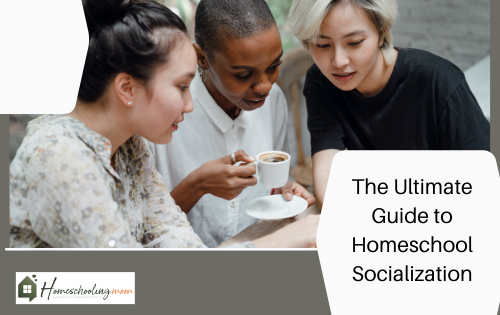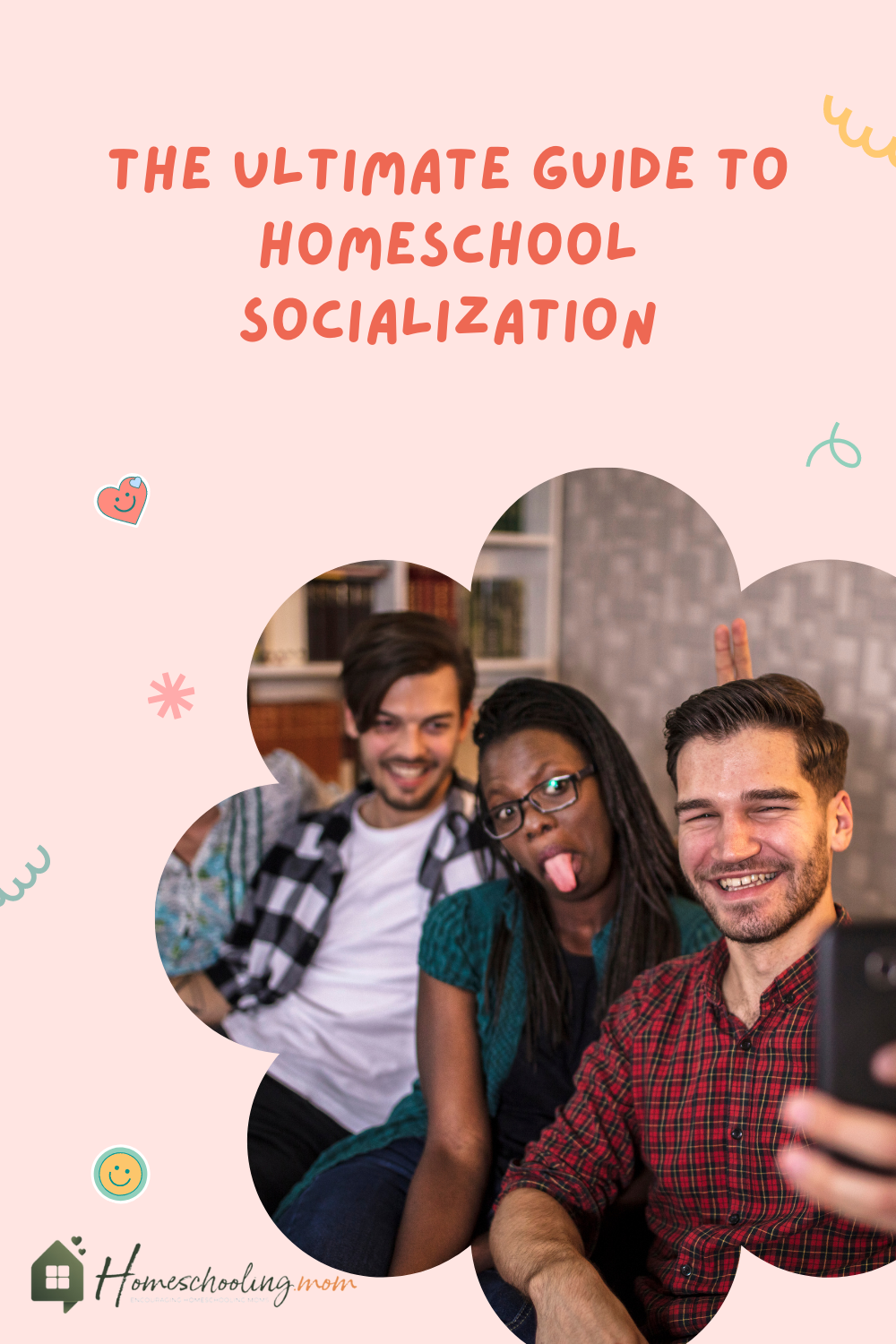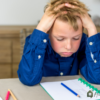The Ultimate Guide to Homeschool Socialization
I want to begin by saying that the "issue" of homeschool socialization is not actually an issue at all. It’s what those that have no experience with homeschooling think is an issue.
In reality, homeschooled children not only have more opportunities for socialization, but they also have a larger diversity in that socialization. Children in public schools get to socialize with primarily same-age peers and a few adults, but homeschooled children spend time around people of all ages and in a variety of settings. The homeschooled child is actually better socialized than those in public school.
If you’re wondering how you’ll manage homeschool socialization, allow me to share some insights with you throughout this article that I hope will put your mind at ease.

What Is Socialization?
A definition of this particular word can help a lot when exploring this subject. Not only can it help by making it abundantly clear exactly what it is we’re supposed to make sure our children get, but it also helps to see why it’s such a silly question to pose to a homeschooler in the first place. Various dictionaries might have several different answers, but the core idea is simple.
Socialization is simply that process that allows an individual to learn values, language, culture, behavior, and social skills that allow them to function in a normal community.
When we put it that way, it almost seems like we homeschoolers should be the ones asking the traditional school parents, “But what will you do about socialization?” doesn’t it? Especially when you consider the many studies that prove homeschooled students almost always outperform same-age public-school peers in both academics and social skills.
Homeschooled students are also often more self-confident than public schooled children. Partly because the structure is so different and more equipping for real life, and partly because homeschooled kids aren’t often the victim of bullies. As a result, these self-confident children grow into self-confident adults who have an easier time relating to people in general.
Homeschool Socialization Starts at Home
No one would dare question the “socialization” of children's social skills who are not yet old enough to enter school. From birth, children begin having social interaction in a family manner that includes all aspects of familial and cultural awareness. They’ll learn how to act and interact in social settings, how to cooperate, how to solve problems, and how to simply be, which will all add to the social development of the children.
In the conventional school model, things are quite different. There is very little freedom offered to the children in attendance. They are expected to know that they should follow directions, ask permission before moving or speaking, stand in line, and how to mimic information back to the one who taught it. It’s not really socialization as much as it is conditioning.
Homeschool families take the individual child into consideration, allowing them to pick up cues at their own rate. Homeschool parents are guides that lead by example and offer help in processing any information that seems to present a problem or a lack of understanding.
Contrary to what much of society thinks, homeschooled children are not hidden away. They are very often right in the middle of all kinds of community events, from mundane to spectacular, and learn vast amounts of things about everyday real life in the process. Ironically, it’s actually in the middle of some of these very social endeavors that many homeschooling parents get questioned about their child’s lack of socialization.
Before there was even the idea of mandatory public education, people lived a life that can be best described as the “hunter/gatherer” lifestyle. Children did not attend a public institution for educational purposes and yet, through home education, still learned a great deal from families, communities, and the necessary tasks for survival, simply by living and watching those around them. When farming became a means to an end, there was less skill involved, but more labor and repetition. Then came industry, automation, inventions, and the idea that childhood should be set aside for learning. As if they were not already doing so, from the beginning.
Does Homeschooling Really Affect Socialization?
The short answer to this question is yes, but it will actually have a positive effect! With no constant influx of negative influence, bullying, peer pressure, drugs, and violence, even from authority figures, there is more opportunity for positive forward movement. It’s amazing the positive effect that comes as a result of a positive environment, especially where academics and learning are concerned.
It is a long-perpetrated and false myth that homeschooled children have no social skills, or that they are “weird”. In all honesty, yes, your homeschooled child might be a little weird. They might enjoy the theatre more than reading the plays. They might like nature hikes and recording what they find there in their nature notebook, in solitude. They might be a bit introverted and shy. But is that really such a sharp contrast from the various character traits you find in public school children?
Another myth is that the homeschooled child will be completely isolated from the “outside world” and have low self-esteem. In reality, you wind up having that very conversation while you’re actually out in the real world, with a student that has positive self-esteem. In truth, our homeschooled children will see far more of the world at large than public-school children ever will, even with their wealth of field trips and clubs.
The Big Question - How will they get socialization?
Almost every homeschooling parent has heard “the” question. It takes many forms and can come at any time. You’re usually asked something along the lines of, "How will they ever learn to deal with “real life”?" if you homeschool them? Or, "How will they get socialization"? As if they get no “real life” opportunities and can't learn socialization unless they’re in public school.
The biggest problem with this question is that it’s been asked so many times, there are actually parents who believe - and worry about - whether or not their child will get all the social activities they should. Or that they will somehow wind up lacking in this area without government schools to help provide proper real-life scenarios. But let’s keep something very important in mind. Public education hasn’t always been the norm.
Well-meaning friends, family members, co-workers, and yes, even strangers, will all ask you how you’re going to manage it. They may even honestly believe it can’t be done. However, there are some important things you have to keep in mind to maintain your own sanity. And you can even use these talking points as a rebuttal to their questions.
Think about your job for a moment. Or any profession, for that matter. Are they subdivided into age groups, or require you to work only with your own age? You certainly don’t see job centers or specific areas marked “For 40-year olds only”. So, this real-life scenario bears no resemblance to public school. The same rings true for other social areas such as libraries, grocery stores, the post office, and the list goes on.
In public school, same-age students, in groups that average thirty to forty students, all sit under a specific teacher who teaches them academics. They are not tasked with providing a socialization structure that would teach the child to interact out in public. What happens then is that children learn their socialization from one another, resulting in the kinds of teenagers and young adults that know little to nothing about what real life is about to throw at them. And they certainly have no Godly mannerisms by the time graduation rolls around unless these are taught at home or in church.
In all fairness, not all public-school children lack social skills. Some family units are blessed to operate in a way that allows the children to pick up great traits for this task. Multi-age activities, younger and older siblings, and the variety of personalization that takes place while shopping or attending some other community function can all lead to a remarkably balanced young person. But let’s be clear: that behavior is never learned in a public school.
Socialization Benefits of Homeschooling
There are extensive social benefits that come as a result of homeschooling your child. Some of the most important are the lack of negative influence from peers and the lack of bullying. These two alone can allow your child to grow and function socially in ways that no public school ever could. Your children will never have to worry about wearing the coolest clothes, just to be part of a group, or have the latest tech gadgets just because “all the other kids” have them.
You might not believe it, but some people actually think that when children are exposed to bullying, it helps them develop character. It’s true that there are some children who are able to muster up the courage and assertiveness to take on bullies and grow from the experience. However, as the anti-bully movement grows, this becomes more dangerous. Now, to defend oneself against a bully is just as punishment-worthy, in the public-school arena, for the victim as it is for the offender. On the other hand, the outcome can be much more tragic, as is reflected by the growing numbers of teens and preteens who are committing suicide as a means of escaping bullies. Does this sound like good character-building to you?
Homeschooling gives your child the ability to interact with people of all age levels, from siblings and parents to church and community figures. This not only gives them actual real-world practice in social skills, it actually allows them to watch you modeling acceptable social behavior. Take them with you when you pay the bills, get your hair done, or go to the dentist, and they’ll see proper social etiquette being played out. Books simply can’t teach things like this.
There are far better outcomes when children are taught and mentored by elders and parents instead of each other. Even in the Bible, warnings are issued against unsavory friendships and companions, but seeking wise counsel from an elder is always a good idea. If there’s any doubt about the validity and importance of having older mentors in the lives of children, just consider the Big Brother-Big Sister program. This is the very basis for this program, and it has seen great success.
Homeschool Socialization Activity Options
If you’re trying to come up with ideas for social activities for your children, think about how you choose these things for yourself. If you’re thinking about joining a club, you’ll likely pick one in which the other members share similar interests. For example, if you enjoy reading, you’ll also enjoy a book club. You wouldn’t take your book to a horseback riding group though. In fact, that would be counterintuitive.
There are many ways you can get your children involved with activities that will help enhance their social lives. In addition to church and family functions, here are a few ideas you can jot down to consider:
- Music lessons
- Dance lessons
- Theatre
- Gymnastics
- Local sports teams
- Language classes
- Homeschool co-ops
- Homeschool support groups
- Volunteer at a homeless shelter or soup kitchen
- Volunteer at a local pet shelter
- Field Trips
- Church or summer camps
- 4H
- Part-time employment
- All sorts of other extracurricular activities
A Few Tips for Homeschool Socialization Issues
Be sure to speak with your child about how to handle any issues that arise. Let them know that they might be questioned as to why they’re not in school, what they’re learning, and if they enjoy homeschooling. You can be as frank with them as you feel you should be, based on their level of understanding, but make sure they understand that not everyone knows about homeschooling.
You should also be prepared to answer “the question” for yourself by learning as much as you can about homeschool socialization, especially as opposed to public-school socialization. Don’t be shy about sharing statistics and facts, or even your own reasons for preferring homeschool over public school. But most of all, don’t forget that this is your legal right, and you do not have to feel badgered by someone who has no place questioning your decisions.

In Closing
Just as with many other aspects of homeschooling, the way in which you socialize with your children will be completely dependent on what’s best for your family, as well as your child’s own personality, character, and learning styles. It’s important that you never feel guilty for doing something that’s right for your family or your child only because it’s not right for every family.
If you’re looking for support and information about homeschool or homeschool socialization, be sure to consider attending a Great Homeschool Convention. With hundreds of workshops, dozens of special speakers and events, and an outstanding number of vendors for homeschool curriculum and resources, you’ll be more equipped than ever. What’s more, you’ll be right alongside other homeschooling families, from those just starting out, to veteran homeschoolers who have been through just about everything.









Stacey Wells
Stacey is an author, blogger, and former homeschool mother who loves to encourage and uplift, especially on the subjects of faith and homeschooling. She lives in Central Kentucky with her husband, Jimmy, and their two children. For more information, visit her website, Words From The Wheel.